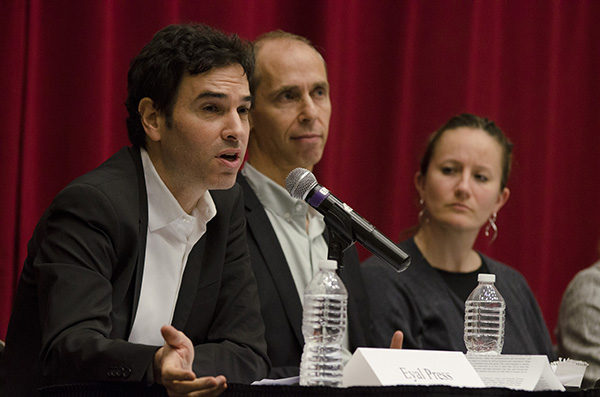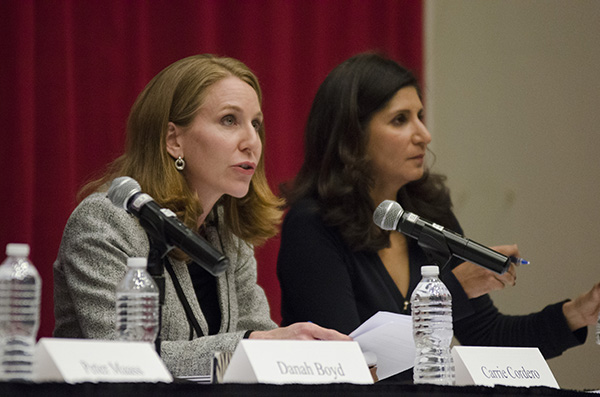
A variety of scholars and experts gathered to discuss the state of surveillance in the United States as part of a roundtable discussion on Oct. 23 at the Global Center for Academic and Spiritual Life hosted by the New York Institute for the Humanities at NYU, the Institute for Public Knowledge and NYU School of Law’s Brennan Center for Justice.
The discussion honed in on the controversy surrounding Edward Snowden’s revelations about the scope of surveillance programs conducted by the NSA, as well as the efficacy of these programs in addressing counterterrorism and their relation to technological innovation.
Co-director of the liberty and national security program in the Brennan Center of Justice Faiza Patel moderated the roundtable. The other panelists were director of national security studies at Georgetown University Carrie Cordero, NYU Media, Culture and Communication professor Danah Boyd and journalists Peter Maass and Eyal Press.
Patel framed the discussion from both a historical and contemporary standpoint.
“The last time that government surveillance was so completely at the center of the public debate was back in the 1970s when a congressional committee by Senator Frank Church uncovered massive illegal spying by the intelligence agencies,” Patel said.
Patel said these scandals led to massive alterations of surveillance laws, which kept the prevalence of surveillance at bay until the 9/11 terrorist attacks. After 9/11, surveillance programs expanded in the interest of national security and counterterrorism but caused concerns, including oversight, secrecy, abuse and efficacy.
Boyd addressed technical aspects of the surveillance laws, expressing the concern that America’s legal infrastructure is outdated compared to the advanced technology that surveillance agencies now use.

Cordero countered by stating that congressional and legal oversight keeps surveillance within proper bounds.
“The oversight structure really should give Americans confidence that the government is not abusing the legal authority [it has] been granted,” Cordero said.
From a journalistic perspective, Maass and Press weighed in on the risks journalists take when covering surveillance stories and whether Snowden is a whistleblower.
Press stated that Snowden is a typical whistleblower despite the mainstream media calling him a leaker.
Maass said the administration’s policies motivate journalists to be more vigilant in uncovering government secrets.
During the question-and-answer portion, the audience posed questions about the international ramifications of American surveillance, the security of all the government’s encrypted data and the legal system’s ability to cope with changing technologies.
“I think that we are going to see increasing levels of distrust, both in regards to government and corporation,” Boyd said. “As we increase the levels of distrust, we actually do ourselves a disservice that undermines the foundations of Ameritocracy.”
A version of this article appeared in the Thursday, Oct. 24 print edition. Andrew Spohn is a staff writer. Email him at [email protected].






















































































































































